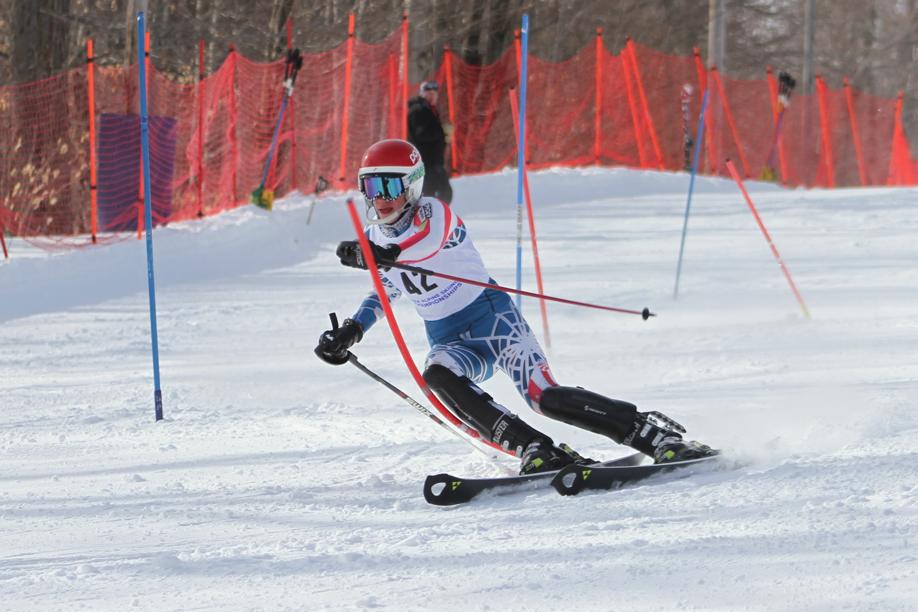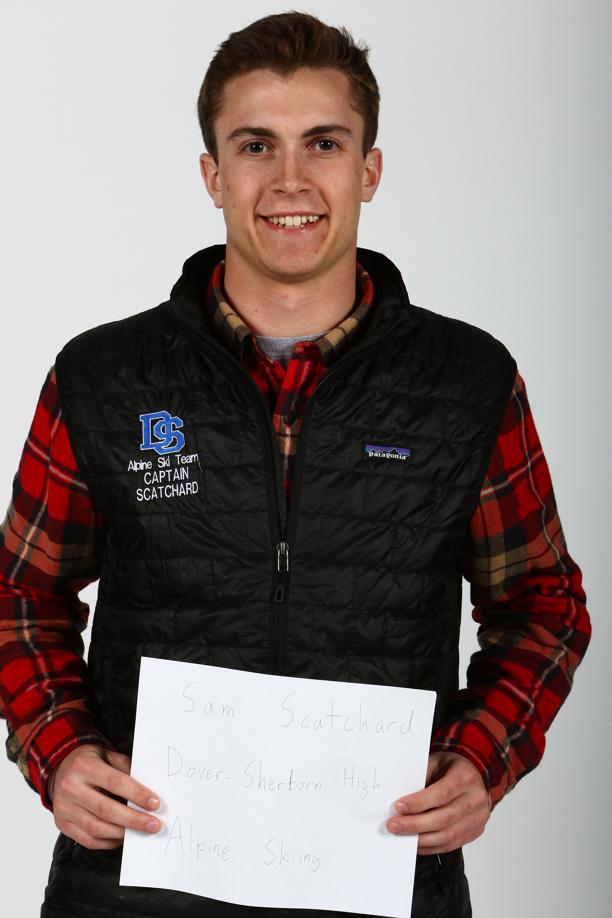

Jack McKenna has been traveling to Vermont to ski since he was a toddler. The Wellesley High junior grew up in a family that loved the slopes, with his parents and three siblings all avid skiers.
Now that he is captain of Wellesley’s Alpine ski team, McKenna is still making those treks to the Green Mountain State. But those weekend getaways have become more like business trips.
While most use ski trips to catch up on rest and relaxation, McKenna and many of the state’s high school Alpine skiers devote their precious days off to more training. With limited practice time on the slopes, the more experienced high schoolers can get on a mountain, the better they will be in the long run.
And with the state championships Feb. 23 at Wachusett Mountain in Princeton, such trips are taking on even more importance.
“The more time you put into being out on the mountain is definitely going to pay off,’’ said McKenna, who finished in the top five in each of the final four Mass. Bay East ski races this season.
“You have to go to a mountain to practice. It’s not like lacrosse, where you can go onto a lawn and start throwing.’’
Like other sports, however, success is derived from commitment. The extra work during those off days can separate the good from the great.
That is why many coaches are encouraging their skiers to get in as much practice as they can, even if that means taking time from weekends and school vacations.
Most local Alpine teams practice on the slopes 3-4 times a week for a couple of hours each day. But sometimes that is not enough, according to Wellesley High coach Cory Tusler, who this season guided his girls’ squad to its fourth consecutive Mass. Bay East title and the boys to a fourth-place finish.
That time away from the team is “where you make it, that’s where the experience lies,’’ said Tusler.
Many high school skiers also compete for club teams or take part in USSA races to gain that added experience.
“For a high school coach, after they get back from being coached up north, it makes my job a lot easier,’’ said Tusler. “It’s the level of competition in the USSA races; it’s 170-plus kids that are going down the same course. They really have to have some good experience to be able to handle the terrain.’’
Finding the energy and drive to devote weekends to more training can be difficult, however, especially after the grind high school Alpine skiers can endure. Most weekdays include long bus rides to ski areas for practices or races that can last late into the evening.
“Overall it is a large time commitment,’’ said Wellesley senior Sami Rubin, who was the state slalom champion in 2013 and won her first four races this season before tearing her ACL for the second time in as many seasons.
“It will be five to six hours with the team on a school night, it’s a large commitment. And then most of us on the team also go up to Vermont or New Hampshire on weekends for outside training.
“At the end of the week, we spend five days on snow to prepare ourselves and get ready for each of our races.’’
And even before Alpine teams hit the slopes, they already are putting in countless hours of training. With snow often hard to come by when the high school season begins the week after Thanksgiving, most teams engage in various types of strength training to get in shape.
“A commitment for us is four days a week after Thanksgiving, two hours a day doing ground land training, doing muscle work,’’ said Dover-Sherborn coach Ron Downing, whose boys’ squad is the defending state champion.
“We build those up because usually there’s no snow in Massachusetts at that time of the year. Usually that’s for the month of December. After vacation it turns into a bigger commitment because we’re on snow.’’
Having the support of parents and family also is vital to an Alpine skier’s success. Between equipment, private lessons, and ski trips, the sport requires a large financial investment.
“Skiing, like hockey, is an expensive sport and [skiers] need the commitment and support of the family,’’ said Weston coach Kevin Rowe. “The drive to the mountains every Friday night for a weekend of skiing is proof that the family loves the sport and hopes that their children love it and succeed.’’
Rubin said the support from family goes beyond what they can provide materially.
“The parents are a huge piece,’’ said Rubin. “They drive us everywhere. The parents help you prepare the equipment, make sure all your equipment is in line.
“Lastly, skiing is a very mental sport. Parents are important to make sure you’re ready and you’re comfortable and they’re there to support you on the mental side.’’
McKenna is hoping those years of family ski trips to Vermont and the countless hours devoted to the sport pay dividends Tuesday when Wellesley attempts to improve on fifth- (boys) and seventh- (girls) place finishes at last year’s state championship.
“We know we definitely want to perform better in states this year,’’ said McKenna. “It was tough not being on hills at the beginning of the year but that gave us more time to prepare for the season with running and getting into the gym. That’s definitely paid off and one of the reasons we’ve had such a great season. It’s put us in position to do well in states this year.’’
Eric Russo can be reached at eric.russo@globe.com.


 PREVIOUS ARTICLE
PREVIOUS ARTICLE